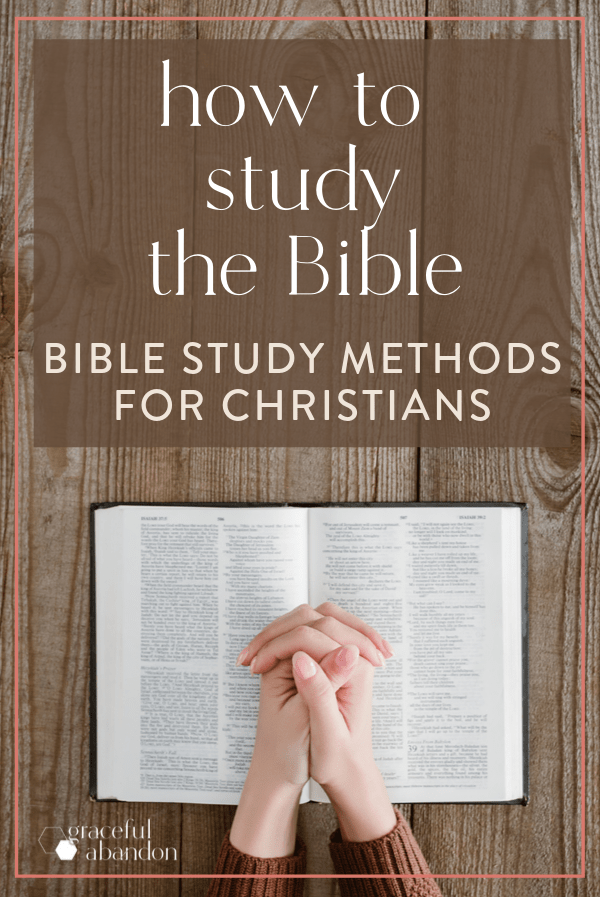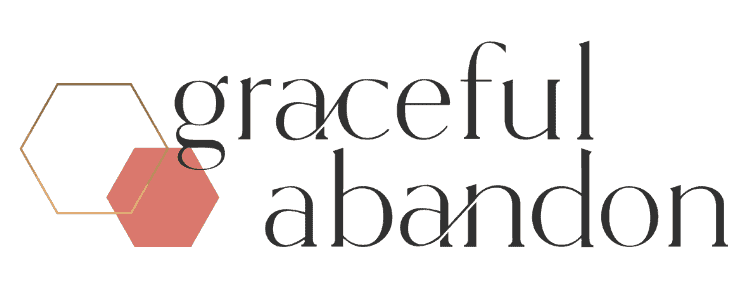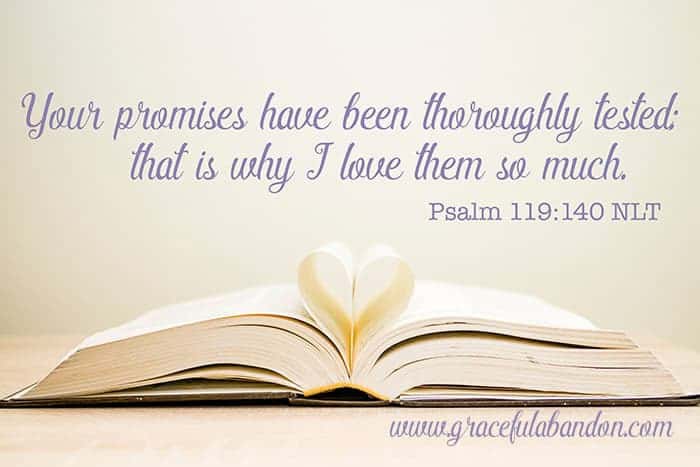How To Study The Bible : 8 Bible Study Methods To Try
We may earn money from the products/companies mentioned in this post. As an Amazon Associate I earn from qualifying purchases. For more information, read our Terms & Disclosures.
There are so many Bible study methods out there, you don’t know what to do or how to start. You know you want a deeper faith and that reading the Bible is important. You’ve got the best Bible apps on your phone and tablet…but something in you yearns to sit down with your physical Bible and study.
But how?
Let’s take a look at how to start. There are so many Bible study methods out there and trendy, fun ways to spend time in the Word that it can be overwhelming. What’s the best Bible study method for you?
Do your best to present yourself to God as one approved, a worker who has no need to be ashamed, rightly handling the word of truth.
2 Timothy 2:15
How To Find The Best Bible Study Method For Yourself
Here are a few questions to ask yourself to help you choose the method that’s best for you. Remember, there’s no right or wrong answers here; you’re simply narrowing down the right study method for your Bible time.
- Are you new to the Bible or do you have more advanced exposure to it?
- Do you want to study a specific book or specific topic?
- Do you want to use only the Bible or extra-biblical resources, as well?
- Do you have a lot of time or a little time each day to spend on your Bible study?
- Are you looking for a more creative or academic approach to your Bible time?
- Are you looking to deepen your faith through devotional study or more in depth time?
Once you understand the various approaches to Bible study and your own goals, you can choose the Bible study method that’s right for you.
The Two Main Approaches to Bible Study
Most people tend to chose to either go through a book or chapter verse by verse or pick a topic/word and use a concordance to find all the places it is found in Scripture and study the meaning and context of each.
Both of these Bible study methods can be effective, but depending upon your situation, one is a better option than the other.
Exegetical Bible Study
This is reading the Bible verse by verse, understanding the audience of the passage, looking for connecting themes, and exploring the intent of each passage as you read it.
This is called exegesis, or exegetical study, and is commonly accepted as foundational to understanding Scripture. The literal definition of exegesis is to “pull meaning from.” Exegesis extracts meaning from the passage you are reading by studying verses in context and examining the original meaning of the author to his intended audience.
If you’re new to the Bible, in the beginning this will just be reading the Bible itself and either a commentary or study Bible notes to help you learn more about the historical and cultural context of what you’re reading.
The more you read and the more Biblical knowledge you gain, the more you’ll start to see connections and patterns and relationships between what you are currently reading and other passages for yourself. You’ll still appreciate the notes and support from other authors, but even as you read you’ll have an “a-ha!” moment and connect it to another passage you read.
This is a method that becomes more powerful the longer you do it.
If you want some support as you do this, read it yourself, do some studying on your own, and then check out these free sermons online that teach through it, verse by verse to glean even more.

Isogetical Bible Study
This method is reading the Bible and thinking about what a verse means to you. It is simply a “read and glean” type of approach.
This type of study is very different and somewhat contrary to the exegetical study method. Where exegesis is extracting understanding from the verse, isogesis is introducing your own understanding into a verse or passage.
This happens way more often than you might realize and is a major reason you need to not solely rely on teachers, but understand the Word for yourself so you can recognize the Word of Truth and it’s importance.
All Scripture is breathed out by God and profitable for teaching, for reproof, for correction, and for training in righteousness, that the man of God may be complete, equipped for every good work.
2 Timothy 3:16-17
One simple solution to that is to use books by trusted teachers or theologians as you are increasing your own understanding and knowledge the Word. One of my favorite word study devotional books is this one.
However, I strongly urge you to do an exegetical study even when you are studying a word or topic (see the Topical Bible Study Method below for more details on how to do this).
How To Study The Bible For Beginners
If you are new to being a Christian or simply new to independent Bible study, it can feel pretty overwhelming. After all, the Bible has 66 books in it and some pretty abstract content at first glance. Where do you start?
Simply. Don’t get overwhelmed by all the choices and let that be a barrier between you and God. Begin simply.
Bible Study For Beginners: Reading The Gospels
A great place to start your Bible study is in the Gospels. All of Scripture is ultimately about Jesus, so what better place to start than getting to know Him better?
While all four Gospels are about Jesus, they each have a different approach. It’s most commonly suggested to beginners that they start with the Gospel of John.
Once you’ve read John, the other three are great to through (Matthew, Mark, and Luke).
As you read them, underline verses that stand out or make notes in a journal. Don’t be afraid to ask someone you trust to talk about them or get a study Bible with notes that will help you understand things better.
But honestly, don’t be afraid to just read…even if it doesn’t all make sense. You’ve got to start somewhere!
Adding Grammar & Vocabulary To Your Study
All too often this is a method that is glossed over, but it’s a very straightforward and simple way to glean more from your Bible study.
Look at the words used and how they are used to help increase your understanding of a passage.
For example, use of the word “therefore” means “because of everything you just read…”. So when you see therefore, put a circle around and go back and read the preceding paragraphs or chapter to see why all those verses point to the one you just read.
A Sunday school teacher I had in my early teen years used to ask us, “What’s the ‘therefore’ there for?” He would then send us reading what came first and explain why it supports that verse. It’s very helpful.
Words like “because” and “but” add meaning and draw attention. Phrases like “above all” or “verily, verily” are used to emphasize significance.

8 Bible Study Methods To Take You Deeper
What if you want to go deeper? What if you want to mine the depths of Scripture looking for priceless gems and greater understanding?
If you’re wanting to know more about how to study the Bible for yourself, these 8 Bible study methods are for you.
The Acronym Bible Study Methods
What do I mean by this? The popular SOAP method is one you might recognize. There’s also REAP, WORD, and several others. They all tend to be very similar, with each letter being a different step to your day’s study time.
- SOAP: Scripture, Observation, Application, Prayer
- REAP: Read, Examine, Apply, Pray
- WORD: Write, Observe, Relate, Declare
While I like all of them and have tried these (and many more) at various points in my walk with God, I like them but find my heart longs for more. They are, however, a fabulous jumping off point or good for a focused time.
The very first time I ever kept a journal of my daily Bible time I used the SOAP method. I was 12 years old and it was eye opening and almost magical to study the Word this way. I also loved it when I was surrounded by toddlers and just needed to focus my quiet time a bit.
Every approach has its place.
The Inductive Bible Study Method
Whether you’re new to Bible study or more experienced and just want to know more about how to study the Bible, the inductive method is ideal.
This Bible study method is truly valuable to a growing faith at all levels. It uses the Bible to understand the Bible, but also takes into account context.
You’ll examine the background of the passage you are reading by answer the questions of who is writing it, to whom, and what is going on culturally and historically at the time it was penned.
Next you’ll write out the verses, rephrasing any words you don’t know by looking up their meaning and writing the meaning in place of the word. This is so you make sure you understand the full meaning of what you are studying.
Write down any questions you have to seek out answers. Look for verses to cross reference with the verses you are studying from other parts of Scripture.
Next, ask God to help you apply the verses to your life, in light of what you know they mean.
Here’s a great example of an inductive Bible study. You can also purchase an Inductive Study Bible and use the notes as you read.

Bible Study With Verse Mapping
This is actually a very simple, yet powerful way to understand a verse or short passage.
If you are very visual (or if you have tweens/teens who are!), this is even more potent of a Bible study method because you see the verse and its meaning laid out.
Verse mapping is a visual version of inductive Bible study.
The Topical Bible Study Method
This is simply studying a topic from the Bible by picking a verse that talks about it, looking up related verses, and putting together the whole picture.
For instance, maybe you read 1 John 5:15 and were captivated by the thought that anything you ask in prayer will be be given to you and you wanted to learn more about that (which would be good, as taken at face value or isogetically, that verse can be misinterpreted quite easily!).
First you’d read it in context of the surrounding verses. Then, using a concordance or even study notes in your Bible, you’d begin to look up other related verses on the same topic: Jeremiah 29:12, Ephesians 6:18, Psalm 145:18, Philippians 4:6, and so on. Read each of those verses in context and then begin to see what they say about the topic.
If you have lingering questions, continue to look up more verses on prayer, answers to prayer, and how to pray.
The Chapter Analysis Bible Study Method
This is simply to go through a chapter verse by verse and look at the overarching themes, the individuals mentioned, any other Scripture verses referred to, and anything else of note.
This is a marvelous way to study and get to know a specific book better. I’ve done this type of study in both Romans and Ephesians and found it very effective and life changing.
Bible Character Study Method
As a new Christian, this fascinated me. My kids love it, too. The character Bible study method is studying the life of someone in Scripture.
Perhaps you will study Moses, David, or Paul. Or perhaps you’ll choose someone not quite as well known like Balaam, Silas, or Rahab.
You would begin by reading the main story about their lives and then look up any other Biblical references to them. Study who they were, when they lived, look up who else was alive in history at that same time (even non-biblical people and historical facts will help you see the bigger picture).
By studying their lives and how God moved in them, you’ll learn more about God and also His relationship with His people.
The Verse By Verse Study Method
Similar to the chapter Bible study method and verse mapping, you’ll go verse by verse through a passage of Scripture and take it apart. But instead of doing only one chapter or one verse with these methods, you’ll look at a group of verses and see how they relate.
This could go on indefinitely, studying each book of the Bible this way if you so desired. Or it could simply be used for a section of Scripture (such as The Sermon On The Mount) or a section such as a parable.
You would go verse by verse and note any words you needed to understand better, and references to other passages in Scripture, and so on.
Studying The Bible With Bible Journaling
Bible journaling isn’t just drawing pictures; there are all sorts of ways to make it a part of your Bible study time.
Bible journaling can be simple, creative, help with memory and more. Check out How To Start Bible Journaling for more information on this Bible study method.
How To Study The Bible During Your Devotions
Some people hear the phrase “Bible study” and get the impression of a lofty, intellectual pursuit. However, the truth of the matter is that all study should have one main goal: to know God better.
We study the Bible to know God better, to have a closer relationship with Him, and to become more like Him.
And why do we have quiet time or do devotions? The same reason.
So don’t overlook your regular devotional time as a beautiful way to study the Bible, too. You can use an acronym study method, the inductive Bible study approach, verse mapping, Bible journaling, or more in your quiet time.
When I’m in the mood to have a guided study instead of applying a Bible study method on my now, my absolute favorite is to use an Engaging God’s Word study. In fact, I’m using one right now with my teens!







